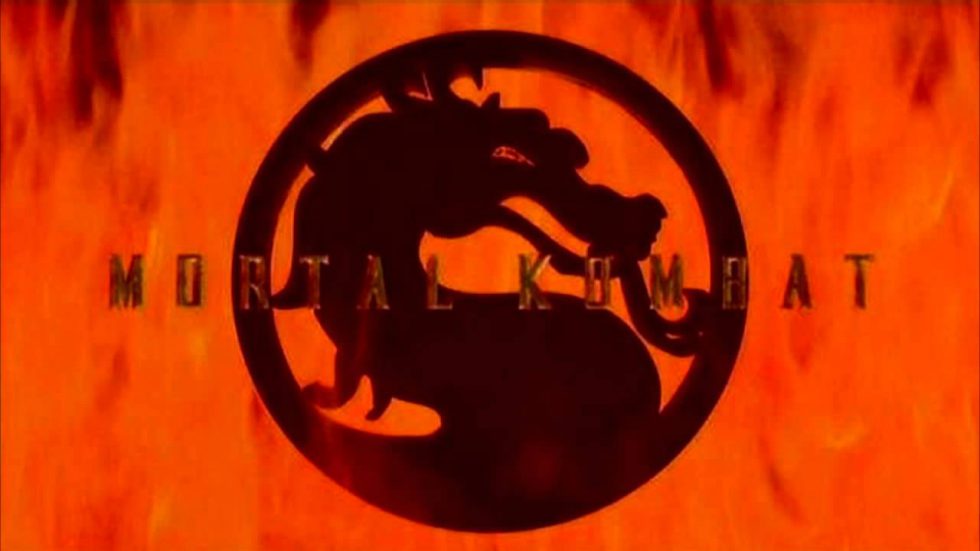
В наши дни экранизации игр могут быть рискованной затеей, но в 1995 году такие попытки и вовсе считались безнадёжными. "Супер братья Марио" (1993) и "Двойной Дракон" (1994) уже успели с треском провалиться, не удостоившись лестных отзывов ни от критиков, ни от фанатов. "Уличный Боец" (1994) стал более успешным в финансовом плане, однако до достижения культового статуса ему было ещё слишком далеко.
Так что это было подобно грому среди ясного неба, когда 20 лет назад, 18 августа 1995, "Смертельная Битва" достигла первой позиции в кинотеатрах. Фильм собрал 122 миллиона долларов в мировом прокате и разрушил проклятие видеоигр, став первой экранизацией, завоевавшей любовь фанатов.
Mortal Kombat пережил дорогостоящие дополнительные съёмки, сломанные рёбра и кричащих руководителей за время своего путешествия от аркадных автоматов до большого экрана. Это путешествие началось, когда продюсер Ларри Касанофф посетил нескольких друзей на Midway Games в июне 1993. Ранее он работал с Джеймсом Кэмероном, превращая "Терминатор 2: Судный День" (1991) в успешный бренд стоимостью в миллионы. Одним из его последних достижений стала аркадная игра T2, линейный шутер, который побил рекорды Midway.
Ребята из Midway показали Касаноффу "Мортал Комбат", новую игру, которая, по их словам, побьёт рекорд T2. Это было нечто кровавое, гиперреалистичное и уже ставшее сенсацией в мире аркадных игр. Но Касанофф считал, что MK суждено стать чем-то большим, чем просто видеоигрой. Он считал игру феноменом уровня Т2. В обозримом будущем он уже видел телесериалы, сценические шоу, альбомы и фильмы. Midway были настроены скептически.
«ТЫ СПЯТИЛ! ЭТО ЖЕ ПРОСТО ИГРА!»
В июне 1993 Ларри Касанофф встречается с друзьями в Midway Games, которые высоко оценивают свою новую сенсацию, Mortal Kombat. Её продолжение, Mortal Kombat 2, находилось на этапе тестирования, и Касанофф был ошеломлён первым взглядом на серию, которая ещё не попала на домашние игровые приставки.
Ларри Касанофф, продюсер:
Я сидел в их офисе и играл в Mortal Kombat где-то полчаса. После чего я обратился к Нилу Д. Никастро [бывшему директору Midway Games] , и сказал: «Это прямо как гибрид "Звёздных Войн" и "Выхода Дракона". Это не просто аркадная игра. Это настоящий феномен». Я сказал: «Если вы передадите мне права на неё, я обещаю вам, что лично займусь производством, фильм – это ещё цветочки, я сделаю MK мировым брендом». Он посмотрел на меня и сказал: «Ты спятил! Это же просто игра!» Затем начался процесс длинной в три месяца, когда я пытался убедить их в том, что это больше, чем просто игра. Но они не верили. Никто не верил в эту затею, потому что незадолго до этого, все эти экранизации игр типа "Братьев Марио" провалились в прокате. Но я всё-таки убедил их, и они предоставили мне права на безумно короткий срок. Сейчас я бы ни за что не ввязался в такую авантюру, но это ведь была первая сделка для моей компании.
Эд Бун, создатель игры “Mortal Kombat”:
Когда фильм ещё только обсуждался, я помню, что вначале не воспринимал это всерьёз. Мне казалось, что дальше разговоров дело не сдвинется. А потом мы вдруг стали получать телефонные звонки по поводу кастинга, и они всё спрашивали: «А как насчёт того парня на роль этого персонажа? А что насчёт этого парня на роль того персонажа?» Я помню, как они спрашивали: «Что вы думаете о Дэнни Гловере в роли Рейдена?»
Касанофф:
Все говорили мне, что это не сработает, что это станет концом моей карьеры. Включая New Line Cinema. Они уже дали фильму зелёный свет, и вот глава студии входит со сценарием, швыряет его на стол и говорит: «Я ненавижу сценарий, я ненавижу этот фильм». Он орал на нас ещё час, а потом сказал: «Чёрт с вами. Снимайте уже, раз решили».
Лори Апелиан, сопродюсер:
Мы получали материалы от очень-очень именитых режиссёров. Режиссёров с целыми списками важных, замечательных фильмов. Но я хотела найти кого-то, у кого был бы свежий, инновационный подход. Я отправилась в комнату для просмотра, чтобы увидеть "Шоппинг". Пол Андерсон был неизвестным режиссёром с этим маленьким фильмом. Я ничего о нём не знала. И я была просто потрясена его талантом. Джуд Лоу, Шон Бин. Они сняли это примерно за 100 тысяч долларов на улицах Лондона. Посмотрев фильм, я сразу сказала: «Мы должны взять этого парня». Тут и думать было нечего.
Пол У.С. Андерсон, режиссёр:
Я вырос в северном промышленном городке Ньюкасл, где не было киноиндустрии. Я приезжал в Лондон на встречи, пытаясь как-то сдвинуть свою карьеру с мёртвой точки. Довольно часто встречи выпадали на 10 часов утра или 3 часа дня. Я не знал никого в Лондоне, поэтому всё, что мне оставалось делать, это три, четыре часа играть в видеоигры на аркадных автоматах. Одной из моих любимых игр была Mortal Kombat. И тут я узнаю, что они собираются снимать фильм по этой игре. Большинство кинематографистов были немного заурядны в этом. Я же был полон энтузиазма.
Апелиан:
Пол приходил каждый день с удивительными, креативными идеями, как лучше снять что-то или как создать какую-то фантастическую сцену. Из-за ограниченного бюджета мы не могли полностью воплотить все его задумки, но внезапно это рождало новые идеи.
Андерсон:
У меня не было опыта работы с визуальными эффектами, поэтому я пошёл в книжный магазин Сэмуэля Френча, и скупил все книги о визуальных эффектах, какие только смог найти. О рисовании на твёрдой поверхности, о CGI. У меня даже выработался свой сленг. Это звучало так, будто я знал о компьютерной графике больше, чем кто-либо другой в Голливуде, хотя для меня это всё было в новинку. Я, конечно, многое приукрасил, но думаю, их впечатлил мой энтузиазм.
КОМБАТОВСКАЯ КОМАНДА
Андерсон вступает в команду на стадии препродакшена в начале 1994, однако сценарий Кевина Дроуни всё ещё дорабатывается. Гонконгский ветеран боевых искусств Робин Шу, оказывается лучшим кандидатом на роль Лю Кенга, однако сам процесс “вербовки” превращается в настоящую пытку.
Робин Шу, Лю Кенг:
Это был мой самый сложный кастинг. Тогда я работал в Гонконге, но периодически прилетал в США, потому что я жил здесь. И вот в один из таких визитов мой друг из агентства говорит мне, что проводится кастинг на фильм "Мортал Комбат". Сначала я рассмеялся, потому что считал "Мортал Комбат" тупейшим названием. "Мортал Комбат"? Фильм по мотивам видеоигры? Но друг продолжал ходить за мной по пятам и всё говорил: «Ты просто обязан попробовать. Сходи на кастинг». В итоге, я пробовался на роль семь раз. Мой друг-агент никогда прежде не слышал, чтобы кому-то ещё приходилось пробоваться на роль семь раз. Я должен был проходить собеседования с продюсерами, с режиссёром, с режиссёром-постановщиком, потом с продюсером по подбору актёров, и, наконец, моя последняя встреча была с New Line Cinema. Им было очень важно взять на роль азиата, потому что этот персонаж, Лю Кенг азиатского происхождения, и они вложили миллионы в этот проект. Это была настоящая пытка.
Андерсон:
Сценарий не был полностью написан, когда мы были на стадии препродакшена, что стало сложной задачей, но это было даже хорошо, потому что это дало мне возможность импровизировать. Когда дело дошло непосредственно до съёмок фильма, я всячески поощрял актёров к тому, чтобы они привносили в фильм что-то своё. В фильме много юмора. В нём много хорошего юмора, особенно от Линдена Эшби (Джонни Кейдж) и Кристофера Ламберта [Рейден].
Линден Эшби, Джонни Кейдж:
Так мы придумали фразу: «Это были очки за 500 долларов, придурок» и ещё тот глупый момент в фильме, когда я вхожу в самом начале и говорю: «Станцуем?»
Бун:
Мы с Джоном Тобиасом [создатель игры "Mortal Kombat", компаньон Буна] оставляли комментарии к сценарию, потому что я помню, что вначале нам он казался слишком комичным. Рейден вечно отпускал шутки, как какой-то юморист, и я помню, как говорил: «Он же серьёзный персонаж, а не клоун». Мы не принимали участия в написании сценария, но мы читали его, а затем отправляли им свои комментарии.
Эшби:
Сценарий всё ещё нуждался в доработке. Так что мы сели, и переработали сценарий до такой степени, что сценарист нас слегка невзлюбил, я думаю. Я помню, как потом встретил сценариста Кевина Дроуни на рождественской вечеринке после выхода фильма. Он представил меня своей спутнице и сказал: «Это тот парень, о котором я тебе рассказывал. Это засранец, который испоганил мой сценарий». (смеётся.) И я такой: «О, привет». Это не был сценарий, сделанный на коленке, мы много работали над ним. Мы не писали Гамлета или что-то вроде того, но это было очень весело.
Апелиан:
Нам нужно было снять фильм, соответствующий рейтингу PG-13. Это было тяжело, поскольку сама игра очень жестокая. Мы детально стали изучать систему рейтингов, чтобы узнать, сколько нецензурных слов допустимо использовать, сколько крови допустимо показывать. Таким образом, мы выяснили, что за убийство человека на экране, фильму автоматически присваивается рейтинг R. Поэтому нам нужно было обыграть всё это таким образом, чтобы любая смерть, показанная на экране, не была человеческой. Если вы посмотрите наш фильм, то увидите, что только Горо убивают на экране, это позволило нам обойти все острые углы и получить рейтинг PG-13.
Касанофф:
Я никогда не воспринимал это так, будто мы снимаем фильм на основе видеоигры. Я всегда представлял видеоигру, как первое воплощение какой-то истории. Игра – это лишь верхушка айсберга. Я всегда представлял, что есть некая история и первым воплощением этой истории стала видеоигра. Что ж, теперь давайте изучим эту историю более подробно и посмотрим, как мы сможем сделать из неё фильм. Так что фильм не противоречит видеоигре, а скорее служит дополнением к ней.
Апелиан:
Изначально мы рассматривали Кэмерон Диас как кандидатку на роль Сони Блэйд. Мы были на студии New Line Cinema, когда фильм «Маска» находился на стадии пост-продакшена. Тогда имя Кэмерон Диас ещё не было у всех на слуху. Никто её не знал. И вот, значит, они говорят: «Есть тут у нас на примете одна молодая, неизвестная актриса. Может вам стоит посмотреть кое-какие кадры с ней. Что скажите?» И как только мы увидели кадры из «Маски», у нас не возникло и тени сомнений в том, что она звезда. Мы заставили её пройти подготовку, поскольку у неё не было опыта в боевых искусствах. Но она сломала запястье прямо перед началом съёмок и уже не могла участвовать в боевых сценах. Поэтому мы были очень рады найти Бриджит [Уилсон-Сампрас]. Здорово, что она оказалась свободна.
Бриджит Уилсон-Сампрас, Соня Блэйд:
Процесс кастинга был очень долгим. Я возвращалась, затем вновь проходила прослушивания, и встречалась с ними так много раз. Наверное, раз семь. И я всё возвращалась и возвращалась… встречалась с Полом, с Ларри, с продюсерами. Затем я получила роль в фильме "Билли Мэдисон". В общем, я приступила к съёмкам в "Билли Мэдисоне" и подумала тогда: «О, Господи, я не получу эту роль», потому что они всё никак не могли принять решение. Затем, уже в последний день съёмок "Билли Мэдисона", они звонят мне и спрашивают: «Ну, так что, ты согласна? При условии, что мы вылетаем уже завтра утром?» и я такая: «Да!» Я была так счастлива, что смогла “убить сразу двух зайцев”.
Апелиан:
Мы также думали пригласить Шона Коннери на роль Рейдена. Однако мы понимали, что на тот момент он нуждался в отдыхе. В то время он не был заинтересован в том, чтобы сниматься в боевиках. На роль Джонни Кейджа нам нужен был актёр, который мог бы выглядеть дерзко, так как этого требовал характер его персонажа, но и в то же время быть человечным. У Линдена было правильное сочетание и того и другого. Дерзкий актёр, но при этом не лишённый человечности и душевной теплоты. Что касается Талисы [Сото, Китана] и Бриджит, то здесь у нас было два хорошо прописанных персонажа. Я не хотела, чтобы женщины были картонными персонажами. Они должны были обладать силой, независимостью и интеллектом, которые выходили бы за рамки их красоты и сексуальности. Они были очень умными, сильными женщинами.
Кристофер Ламберт, Рейден:
Я пообедал с Полом Андерсоном и Ларри Касаноффом, и они предложили мне эту роль. Они дали мне сценарий, он показался мне забавным. Прежде чем согласиться, я посмотрел первый фильм Пола. Мне он очень понравился. Ну а затем уже появилась шляпа, халат, белые волосы - всё это помогло создать образ. В фильме, из-за сверхъестественной силы Рейдена, ему не нужно тренироваться. Замечательно. Это был единственный боевик, для которого не нужно было проходить специальную подготовку.
Андерсон:
Когда ты снимаешь свой первый голливудский фильм, будучи молодым режиссёром, существует большая опасность того, что ты будешь поражён его масштабом. Поэтому присутствие опытного человека на съёмочной площадке, именитого, высокооплачиваемого актёра, такого, как Кристофер, очень помогает. Он вёл себя спокойно и непринуждённо, для него это не составляло большого труда. Такой человек задаёт общий тон на съёмочной площадке. И ты понимаешь, что если это не является проблемой для него, значит это не должно составлять проблем для всех остальных.
Бун:
Кристофер Ламберт проделал отличную работу. Он привнёс в эту роль много своих личных фишек. Тогда мы ещё не мыслили так глобально. Мы рассматривали Рейдена, как персонажа из азиатской мифологии. В игре мы никогда не показывали его лица так чётко, и никогда не указывали его принадлежность к какой-то определённой расе, но мы точно не думали о нём, как о «Горце». У нас такого и в мыслях не было.
Андерсон:
С Кристофером мы заключили творческую сделку, так как он работал всего четыре или пять недель за определённую сумму. Его гонорар был солидным, и он не мог позволить себе отправиться в Таиланд, поскольку это вышло бы за рамки той суммы, что мы ему заплатили. Поэтому я разработал план, согласно которому мы собирались снять Криса в Лос-Анджелесе крупным планом, затем снять общие планы с его дублёром в Таиланде, а потом уже грамотно склеить эти кадры. Кристофер выслушал мою идею и затем сказал: «Забудь об этом. Я лечу в Таиланд». Ему казалось, что если он сможет непосредственно находиться там, среди этих пейзажей, это сделает фильм лучше. Так всё и вышло. Уверен, его агенты, менеджер и адвокат были в бешенстве, так как, по сути, он отправился в Таиланд забесплатно. Прибыв на место, он платил за всё из собственного кармана.
НАЧАЛОСЬ
Команда собирается для первой части съёмок в Лос-Анджелесе, прежде чем отправиться на месяц в Таиланд, где затем будут сняты многие запоминающиеся сцены.
Эшби:
Мы отправились в аэропорт Санта-Моники, мы там много снимали. Благо, было где развернуться. Там на южной стороне поля был ограждённый участок, и мы ездили туда в пятницу, когда упаковывали багаж. О, мой Бог. Что там творилось, это просто умора! У нас был медик, забавный такой парень. Шустрый малый. Он отвечал за безопасность на съёмочной площадке. Ему нужно было идти в охрану, а не медиком работать. А у Тома Круза был ангар неподалёку, и вот значит, он подходит и говорит: «Эй, ребята, а что вы тут снимаете? Можно мне взглянуть?» А медик ему: «Вы не снимаетесь в фильме. Уходите!» Том Круз такой: «Да я просто посмотреть хочу», а он говорит: «Мне всё равно, кто вы, убирайтесь отсюда!» Представляете!? Он спровадил Тома Круза!
Андерсон:
Горо был создан Томом Вудраффом и Алеком Гиллисом из компании Amalgamated Dynamics. Том – это тот самый парень в костюме Чужого в фильме “Чужой 3”. Горо обладал внушительным размером, поэтому для того, чтобы привести его в действие, требовалось много компьютеров и людей, которые им управляли. Он часто ломался, и нам вечно приходилось ждать, пока его починят. Горо стал нашей капризной Примадонной. Все прикалывались над ним и говорили: «Горо не хочет выходить из своего трейлера». Мы заблокировали его, и я попытался снять его как можно более креативно, чтобы не пришлось мучиться, управляя такой громадиной. Мы немного поколдовали с компьютерной графикой, чтобы улучшить синхронизацию его губ и ещё кое-что. Была даже встреча всей съёмочной бригады, на которой мы обсуждали вопрос о том, чтобы взять Горо в Таиланд, и я сразу сказал: «Этого никогда не произойдёт. Он еле дышит в студии в Бурбанке, и я даже боюсь представить, что с ним будет в Таиланде».
Джонатан А. Карлсон, постановщик:
У этого парня было 13 или 16 кукловодов. Кабели тянулись повсюду. Один человек управлял глазными яблоками, другой заставлял его брови шевелиться, третий управлял чем-то другим. Они потратили один миллион долларов на эту куклу. Когда мы спроектировали сады со статуями, мы также хотели поместить туда красивые пруды с большими, плавающими там лилиями, но в последний момент они испугались того, что Горо может упасть в один из моих прудов и тогда короткое замыкание повредит всю электронику. Вместо этого было сказано: «Давайте испортим дизайн Джонатана и обойдёмся без прудов», поэтому мы вынесли оттуда всю воду.
Андерсон:
Первая сцена боя, которую я снял, это был бой с участием Робина Шу. Просто представьте себе: вот Робин - человек, который снялся в уйме фильмов в Гонконге… и я – полный профан в этом деле. Мы начинаем снимать этот большой, длинный бой, и мы снимаем его одним дублем, общим планом. Тут я замечаю, что что-то идёт не так, и начинаю сначала. Затем появляется ещё несколько ошибок, и я опять начинаю всё сначала. Естественно, парни уже начинают уставать, ведь они выкладываются по полной. Наконец, Робин подходит ко мне и спрашивает: «Пол, ты ведь знаешь, что такое охват пространства?» И я такой: «Ах да! Прости». Дело в том, что при съёмке боевых сцен общий план используется только где-то на пару секунд и всё. Сам бой вы всегда снимаете в более плотном радиусе, чтобы показать удары с правильных ракурсов. Работая над этим фильмом, я многому научился, и мне очень повезло работать с людьми, которые относились ко мне с пониманием, и не пытались меня придушить, когда я заставлял их непрерывно отрабатывать боевые сцены на общих планах.
Шу:
Когда Пэт [Э. Джонсон] ставил бои, он должен был максимально адаптировать их под мой стиль. У меня в голове было много идей, позаимствованных из гонконгского кино. Они немного стилизованны, но это ведь экшн, боевые искусства, фильмы о кунг-фу, так что всё в порядке, так и должно быть. Так что он дал мне свободу делать всё, что я захочу. Работали мы так: он даёт мне сценарий, и проводит первую комбинацию ударов, а затем я либо завершаю её, либо просто перехожу к следующей комбинации, исходя из того, как, по моему мнению, должен протекать ритм боя. Затем он предлагает. «Может быть, здесь нам стоит попробовать что-то другое? То, что будет лучше для сюжета». На самом деле, в боевых сценах тоже присутствует сюжет. Он задал мне такое направление, и я просто изменял ход поединка в соответствии с его замечаниями. Вообще хореография похожа на танец. Всё дело в том, как перейти из точки А в точку В и из точки В в точку С, чтобы уже в точке С завершить бой. Ты разрабатываешь комбинации, которые плавно переносят тебя от одной точки к другой, а затем завершаешь эту комбинацию в конце. Я смог привнести много своих личных задумок в боевые сцены фильма.
Андерсон:
Перелёт в Таиланд был важным решением, потому что мне нужны были настоящие, большие пейзажи. Когда мы отправлялись на разведку, то находили места и пляжи, которые мне очень нравились, но также были и те, до которых было не так просто добраться. Каждое утро нам приходилось перевозить всё оборудование на лодке. Это было замечательно, потому что я каждый день работал на катере. Не имело значения, как ты устал прошлой ночью. К тому моменту, когда ты приступал к работе, пересекая залив со скоростью 60 миль в час, и ветер развивал твои волосы, это было фантастически. Ты чувствовал себя по-настоящему окрылённым.
Карлсон:
У тайцев совершенно другой менталитет в том, что касается строительства и создания декораций. Я им говорю: «Парни, видите вот эти валуны? Нам нужно перетащить их вон туда». Затем прибежит около сотни ребят, они постоят, покурят, обойдут вокруг валуна, потом будут спорить о том, как лучше его перетащить, затем перетащат. Потом они остановятся, снова покурят, затем опять будут орать и спорить о том, куда его тащить. Наконец, ты возвращаешься в конце дня, и валун будет с другой стороны. Тогда я им предлагаю более простой вариант: взять экскаватор и перетаскать всё за пять минут. А они мне: «Нет, нет, нет. Мы работаем по-своему». Затем мы нашли одного местного парня, которому принадлежало много тяжелой техники. Мы наняли его, он пришёл, надавал всем пинков, наорал на них хорошенько. И всё. С этого дня всё шло как по маслу. Но первый месяц без него - это был просто какой-то кошмар. Ничего не делалось. Давление нарастало. В общем, он пришёл, отвесил им люлей, и после этого все стали работать быстро.
Эшби:
В Таиланде были ребята, которые надолго отправлялись вверх по реке. Было так жарко. Ты снимаешься в тропиках, алкоголя выпито немеренно - ты стоишь там, люди потеют, и от них несёт перегаром, как от ликёроводочного завода. Ты стоишь рядом с кем-то, и вдруг он просто падает в грязь. Всё. Он в отключке. В этот момент все так сильно болели. Ты просто смотришь на лежащего рядом парня, и слышишь: «И, снято». Никто даже не обращал на это внимания.
Уилсон-Сампрас:
Я была тихоней, которая заканчивала работу и уходила в свою комнату. И так повторялось изо дня в день - так грустно. Я помню, как весело они там проводили время. Я тоже отрывалась, только по-другому. Моя мама поехала со мной. Не помню, сколько мне тогда было… 21 или всё ещё 20? Мы ездили повсюду и отрывались. Это было самое красивое место, которое только можно увидеть.
Карлсон:
Мы нашли новое применение для монтажной пены при работе над декорациями к фильму. Это жёлтая пена, которая расширяется на 28, 30 размеров больше собственного веса. Потрясающая штука. Это производное белого пенополистирола, которое может стать твёрдым, как камень или мягким, как зефир, или же его можно использовать как пластилин в определённой консистенции. Прежде чем вы это узнали, мы создали свой мир при помощи этой пены. К примеру, мы берём веревку из конопли, разбрызгиваем эту пену, затем она вспенивается, и это становится большой лозой. Или же мы распыляем её на пластик, затем надламываем, отгибаем углы, и это превращается в гигантские листья. На нас работали целые команды людей, ездящих по всему Бангкоку, потому что тогда было трудно найти пенополистирол в Таиланде. Эти парни штурмовали все рынки и специализированные магазины, скупая пенополистирол, где только можно.
Уилсон-Сампрас:
Все свои трюки и боевые сцены я выполняла сама, это было потрясающе. Мне не пришлось так долго готовиться, в отличие от остальных ребят, которые занимались с тренерами в течение нескольких недель до начала съёмок. К счастью, они поместили мою сцену боя с Кано [Тревор Годдард] в самый конец, когда мы уже были на съёмках в Таиланде, поэтому я тренировалась параллельно съёмкам, во время обеда или в свободное время. В самом начале я вывихнула плечо. У меня произошло частичное смещение плечевого сустава, но это было странно, так как я была в полном порядке. Они волновались и заставили меня пройти эти тесты. Они говорят мне: «У тебя, должно быть, проблема с плечом, но тебя это, видимо, не беспокоит, раз ты ничего не говоришь нам. У тебя, что, волшебное плечо?» А я говорю: «Клянусь, я не знаю. Я не знаю, что случилось». В общем, они вправили мне плечо, и мы продолжили съёмки. Всё было в порядке.
Касанофф:
На съёмки некоторых боёв уходило по две недели. В фильме всё по-настоящему. Если вы видите, как парень с разбегу прыгает кому-то на плечи и затем сворачивает противнику шею, значит именно это он и делает. Мы облазили весь мир в поисках этих уникальных мастеров боевых искусств, собрали их всех вместе, и придумали боевые сцены, отражающие их навыки. То есть, если у одного парня имелся определённый навык, мы ставили для него боевую сцену, которая позволяла продемонстрировать его умение во всей красе.
Бун:
В то время для меня процесс производства был в новинку. Видеть всех этих людей в костюмах и слышать, как они говорят: «Завтра приедет парень, который играет Шан Цунга. На следующей неделе мы снимаем бой Саб-Зиро с Лю Кенгом». Ты мог воочию наблюдать за тем, как всё это планировалось. Всё было абсолютно реально, с бюджетом. Это было очень волнующе для двадцатилетних ребят, просто находиться там и видеть, как их игра постепенно превращается в фильм.
«Я МОЧИЛСЯ КРОВЬЮ»
После завершения съёмок в Таиланде тестовая аудитория говорит команде, что фильм замечательный, но есть одна серьёзная проблема.
Эшби:
Мы свернули производство, затем собрали все отснятые сцены, и они вдруг поняли, что там не хватает эпичных, запоминающихся поединков.
Касанофф:
Когда мы тестировали первую версию фильма, реакция аудитории была на 100% единодушной. Все они в один голос заявили: «Нам очень понравилось всё, что мы увидели, но в фильме не достаточно драк». Поэтому мы вернулись и потратили ещё больше денег, чтобы снять дополнительные боевые сцены.
Андерсон:
Мы добавили мои любимые бои. Бой Скорпиона с Джонни Кейджем и бой Рептилии с Лю Кенгом. У нас был очень хороший постановщик трюков, но по мере того, как фильм продолжался, мне всё больше хотелось поэкспериментировать с тросами, дабы привнести в наш фильм атмосферу гонконгских боевиков. И Робин отлично справился с этой задачей, он сам поставил дополнительные боевые сцены. Робин - актёр, но начинал он как каскадёр в Гонконге. Он и с Джеки Чаном работал, так что он знал в этом толк. Если вы посмотрите "Мортал Комбат" сейчас, то заметите, что это был первый раз, когда все эти китайские приколы с тросами использовались в западном фильме. Конечно, в "Матрице" несколько лет спустя всё это было сделано уже на совершенно ином уровне. Но по тем временам "Мортал Комбат" был революционным в этом отношении.
Шу:
Несмотря на то, что это фильм, и ты хочешь выглядеть правдоподобно, всё же не стоит забывать о том, что это фильм, основанный на видеоигре, и его нужно стилизовать. Движение не должно прекращаться. Персонажи не должны делать передышки, потому что, если Скорпион хочет кого-то убить, он будет неустанно идти за своим противником. То же самое с Рептилией. Не должно быть никаких пауз. Нет такого, чтобы я сбил противника с ног, передохнул, потом он поднялся, и мы снова дерёмся. Это было бы скучно!
Андерсон:
Робин оценивал бои в один, два или три очка. Это означало, сколько ребёр он повредил во время того или иного боя. Например, бой с Рептилией оценивался в три очка, поэтому он реально чувствовал, что выложился ради меня. Ещё я помню, что Линден Эшби глотал обезболивающее как M&M'S. Мы выбили из него всю дурь во время этого боя. Очень хорошо помню момент, как он еле плетётся со съёмочной площадки и жалуется: «Такой боли я ещё никогда в жизни не испытывал». А я его такой спрашиваю: «Ну? Сколько ребёр ты сломал? Робин сломал три!»
Шу:
Самым трудным в бою Джонни и Скорпиона было убедить Линдена в том, что он может всё. Он же актёр. Сначала он отнекивался, мол: «Дайте мне дублёра!», а ему говорю: «Линден, ты прекрасно можешь сделать всё сам. Чем больше ты делаешь, тем реалистичнее и правдоподобнее выглядит сцена». И он купился. «Да, тебя избивают. Ты получаешь синяки, но в конце ты выглядишь фантастически».
Эшби:
Я дрался с Крисом Касамассой [Скорпион], который, по забавному стечению обстоятельств, был моим учителем. В этом бою Крис со всей дури зарядил мне ногой по почкам. На мне были специальные защитные подушки, но его пятка вошла прямо между этими подушками. После этого смачного удара я мочился кровью. Чёрт, больно было!
Шу:
Мой бой с Рептилией задумывался более динамичным. Я делал всё в этой сцене. Там есть момент, когда Рептилия бросает меня, и я ударюсь об колонну, так вот, во время исполнения этого трюка, я сломал два ребра, потому что не ожидал, что ударюсь о край колонны. К тому же это был мой десятый дубль, так что я немного подустал. Но я никому ничего не сказал. А смысл? Если бы я сказал им, что сломал рёбра, они бы остановили съёмки и тогда всё, прощай моя голливудская мечта. Боль была просто адская. Я принял много обезболивающего, а затем продолжил оставшуюся часть боя с двумя сломанными рёбрами. Я сказал Киту Куку, который играл Рептилию: «Я чувствую боль в правом боку, постарайся не бить меня туда». В общем, стиснув зубы, я выдержал этот бой, а затем сразу отправился в больницу.
«МЫ ПОЛУЧИЛИ ПИНКА ОТ ДВУХ ЗВУКОЗАПИСЫВАЮЩИХ КОМПАНИЙ»
Саундтрек "Смертельной Битвы" оказался весьма смелым. В нём использовалась электронная танцевальная музыка, что было крайне нетипично для голливудского фильма. В связи с этим, заключение сделки со звукозаписывающей компанией стало почти невыполнимой задачей.
Касанофф:
Этот саундтрек стал первым в истории платиновым альбомом электронной танцевальной музыки. Мы настаивали на использовании электронной танцевальной музыки, в то время это считалось полнейшим безумием. Мы получили пинка от двух звукозаписывающих компаний. Мы хотели заключить сделку с Sony за большие деньги. В те дни на саундтреках можно было прилично заработать – сейчас это уже не возможно. Мы заходим к ним и говорим: “Вот наша идея - электронная танцевальная музыка”. А они нам: «Нет, вот наша идея. Бакетхэд! » Это парень, который играл музыку с ведром на голове. Мы подумали: «Ну, он хороший гитарист ...» они хотели, чтобы Бакетхэд устроил дуэль с Эдди Ван Халеном или что-то типа того. Мы продолжаем гнуть свою линию: “Электронная танцевальная музыка”, и они вышвырнули нас. Затем мы обратились к Virgin Records. Мы входим и говорим: «У нас отличная идея. Электронная танцевальная музыка». А они такие: «Да, как насчёт Джанет Джексон?» Нет, она, конечно, замечательная певица, но мы такие сразу: “Что? Джанет Джексон в Смертельной Битве”? Короче, нас снова вышвырнули. В итоге мы так и не заключили сделку. К счастью студия пошла на уступки, дав нам полную творческую свободу. Мы сделали саундтрек к MK и передали его одной маленькой звукозаписывающей компании, о которой никто никогда не слышал, и в итоге получили первый платиновый саундтрек с электронной танцевальной музыкой.
Джордж С. Клинтон, композитор:
Для первого тестового прослушивания они продемонстрировали временную музыкальную зарисовку, которая состояла в основном из традиционной оркестровой боевой музыки, и вскоре стало очевидно, что целевой аудитории, которая привыкла слышать техно во время игры, не придётся по душе такой подход. Так что это дало мне возможность реализовать свою идею, которую я назвал: «Техно-Тайко-Орко». Основу моей музыкальной зарисовки составляло техно с наложением поверх него азиатских этнических инструментов (тайко-барабаны, сякухати, тувинский горловой певец), и всё это в сопровождении оркестра. Но только не обычного оркестра, а “тестостеронового” оркестра. Никаких инструментов для скрипичных ключей (никаких флейт, кларнетов, труб, скрипок и так далее). Всего 18 альтов, 14 виолончелей, шесть басов, много латуни и перкуссия. Это создало массивное звучание. Когда музыкальные руководители Джон Хулиан и Шарон Бойл познакомили меня с гитаристом Бакетхэдом, я знал, что он станет ключевым элементом в моей зарисовке.
Касанофф:
Мой компаньон - Джимми Иннер, помимо всего прочего, один из величайших музыкальных продюсеров в истории. Что должно быть в боевике, по его мнению, так это заводной ритм. Должен быть танцевальный ритм. Должен быть ритм, который заставит зрителей двигаться во время боя, а не просто смотреть его издалека. Вы должны увлечь зрителей. И поскольку это “Смертельная Битва”, здесь нужно что-то резкое, заводное, драйвовое. Вот почему мы остановились на такой музыке. Мы просто из кожи вон лезли, пытаясь найти нужных нам людей. Мы заглядывали во все клубы, находили людей, получали материалы. Мы нашли лучших музыкантов в нашей округе. Мы всё искали и искали. Всё пытались, пытались и пытались. Это был бесконечный процесс. Музыка в фильме нужна для того, чтобы обслуживать фильм. Обслуживать отдельные сцены. Если вы посмотрите один из этих боёв без музыки, и затем с музыкой, то уже через 30 секунд вы, как заведённый, вскочите со своего места. Никакого волшебства, мы просто знали, что так будет правильно.
Клинтон:
Те треки, что они выбрали для фильма, были просто убийственными. В том числе классическая песня “Immortals”, поэтому ещё один вызов для меня заключался в том, чтобы и моя зарисовка не затерялась на общем фоне.
«У МЕНЯ БЫЛ ДИКИЙ МАНДРАЖ»
Фильм отправляется на пост-продакшен, и команда ждёт даты его выхода 18 августа 1995 года. Результат удивит всех, так как фильм будет держаться на первом месте три недели подряд.
Ламберт:
Когда "Смертельная Битва" ещё снималась, индустрия очень сомневалась в успехе фильма. «Мы понятия не имеем, сработает ли это» - говорили они.
Андерсон:
У меня был дикий мандраж перед премьерой. Столько мыслей роилось в голове! Выстрелит ли фильм? Или это будет полный провал? Смогу ли я сохранить карьеру? Или меня выгонят пинками из Америки? Я подумал тогда: «Господи, Лос-Анджелес – это последнее место на Земле, где я хочу сейчас быть. Я просто хочу затаиться где-нибудь». Я отправился на Гавайи с моей тогдашней девушкой, просто чтобы избавиться от этого давления, и, конечно же, мы оказались у чёрта на куличиках. И вот я читаю в газете, что фильм занял первое место. И я такой: “Чёрт, почему мы не в Лос-Анджелесе? Мой фильм на первом месте, а я торчу здесь! Я должен быть в Лос-Анджелесе и купаться в лучах славы”. Но я уже заплатил за поездку на Гавайи, так что нам пришлось остаться там.
Бун:
Я помню, как просыпаюсь в воскресенье утром, включаю CNN и слышу: "Смертельная Битва" заработала 23,3 миллиона долларов», это стало вторым по величине августовским событием в истории, что было просто невероятно. Мы всех порвали!
Апелиан:
Никто из нас не сомневался в успехе фильма. Но мы были удивлены, что он держался на первом месте в течение трёх недель. Я не думаю, что мы этого ожидали.
Касанофф:
Я пообещал директору Midway Нилу Д. Никастро, что сделаю MK мировым брендом. И я сдержал обещание. Дальше пошло-поехало: сериалы, театрализованные шоу. Дошло до того, что уже в день премьеры фильма, я сел в самолёт до Кэтскилла, чтобы приступить к репетиции шоу в Radio City Music Hall. Впоследствии всё это вылилось в несколько лет моих бесконечных метаний от одного MK-проекта к другому.
Андерсон:
После "Смертельной Битвы", мне захотелось попробовать себя в чём-то другом. Помню как глава студии New Line Cinema, Майк Де Лука спросил меня, не хочу ли я вернуться и снять второй фильм "Смертельная Битва: Уничтожение". Но в итоге я взялся за другой проект. Моим следующим фильмом стал "Сквозь Горизонт", очень мрачный фильм, полная противоположность "Смертельной Битвы". После успеха с MK я расправил крылья. Теперь, оглядываясь назад, я думаю: «А, может всё-таки стоило этим заняться». Уже потом, спустя годы, когда я приступил к съёмкам "Обители Зла", я сказал себе: “Раз мне выпал шанс экранизировать ещё одну игру, то уж теперь-то я доведу дело до конца. Я навсегда останусь с франшизой и буду пасти её”. По иронии судьбы, мой отказ от работы над второй "Смертельной Битвой", стал причиной того, что я всё никак не расстанусь с "Обителью Зла", снимая всё новые и новые части.
Официальный источник: www.hollywoodreporter.com
Опубликовано: 18 августа 2015
Перевод: Black Dragon
Метки: Mortal Kombat, Бриджит Уилсон, Крис Касамасса, Кристофер Ламберт, Кэри-Хироюки Тагава, Линдэн Эшби, Пол У. С. Андерсон, Робин Шу, съёмки, Талиса Сото, Тревор Годдард



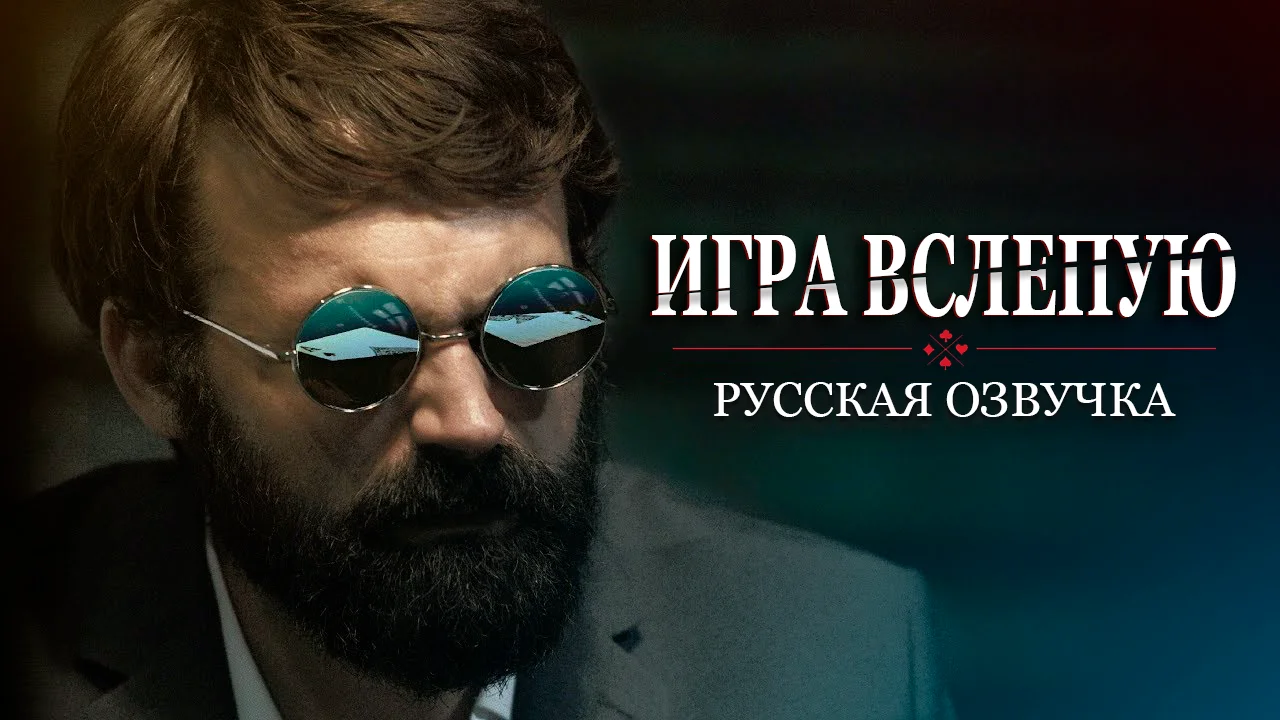
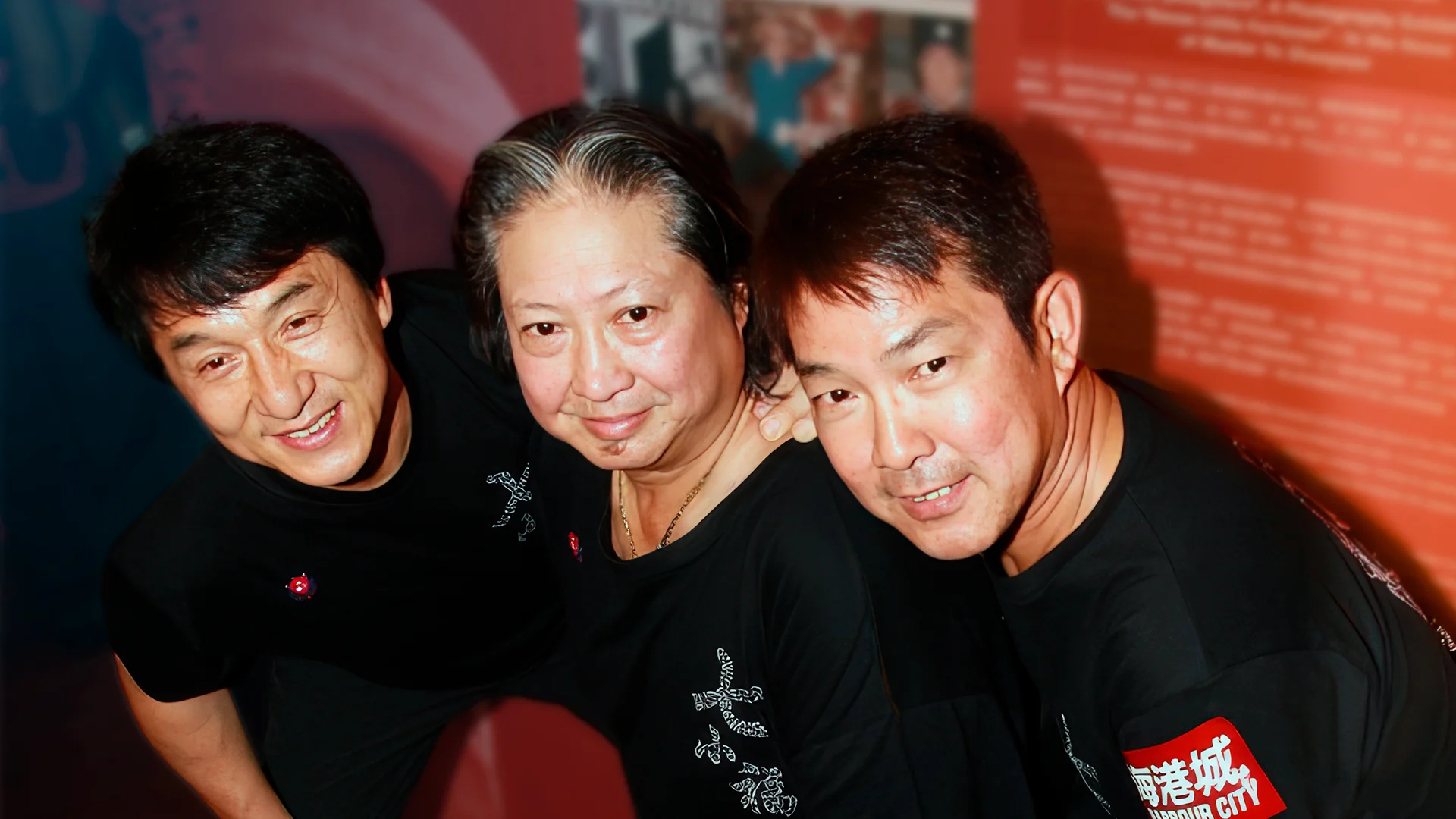
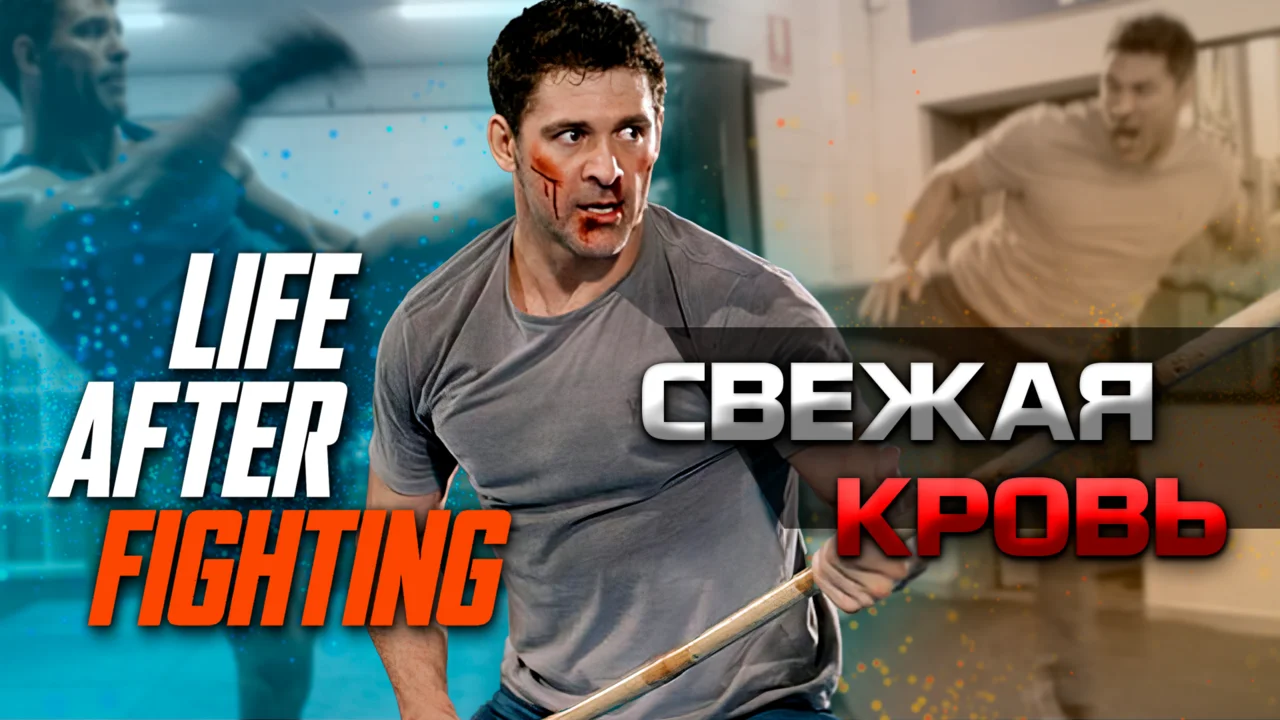
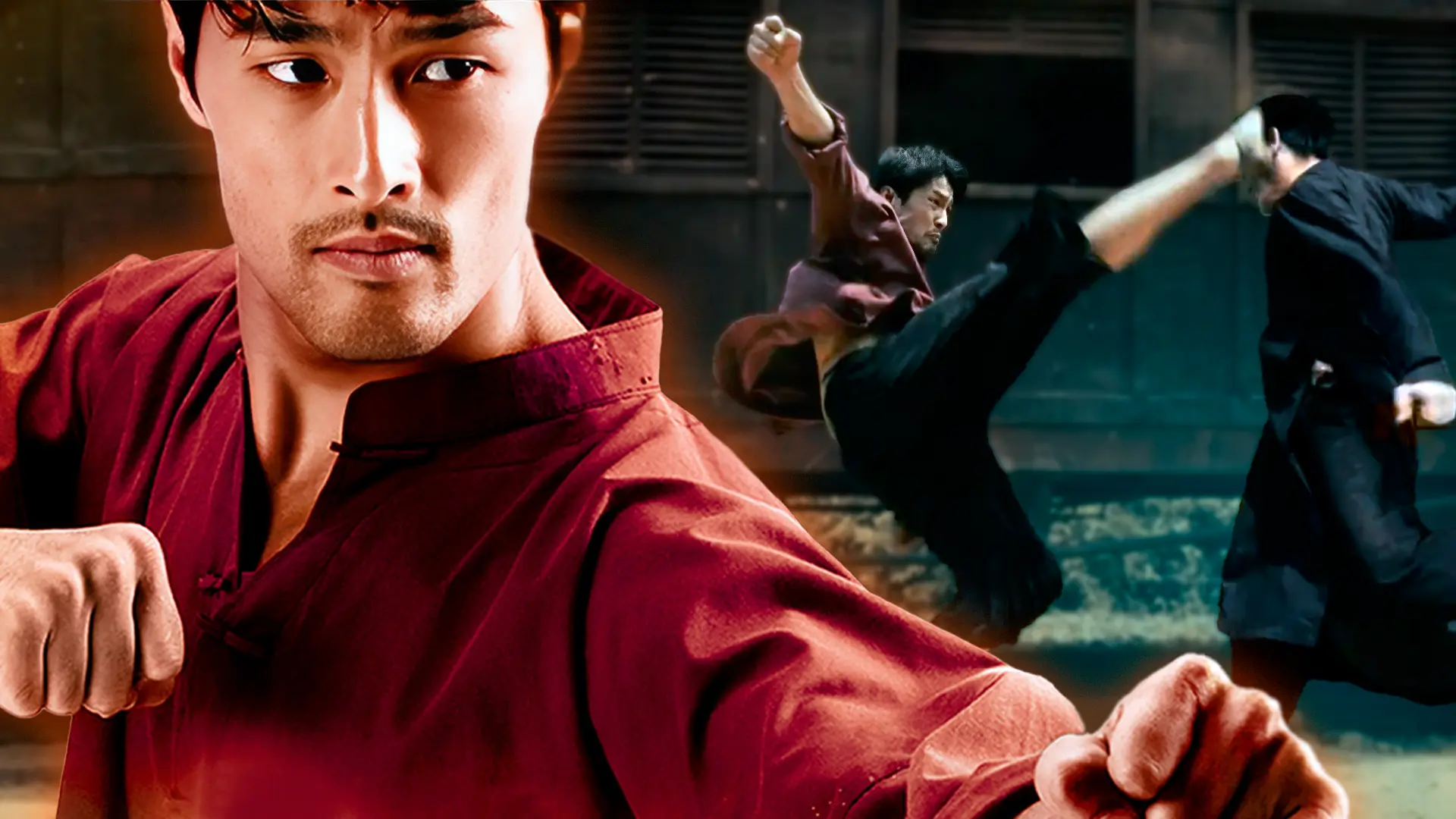
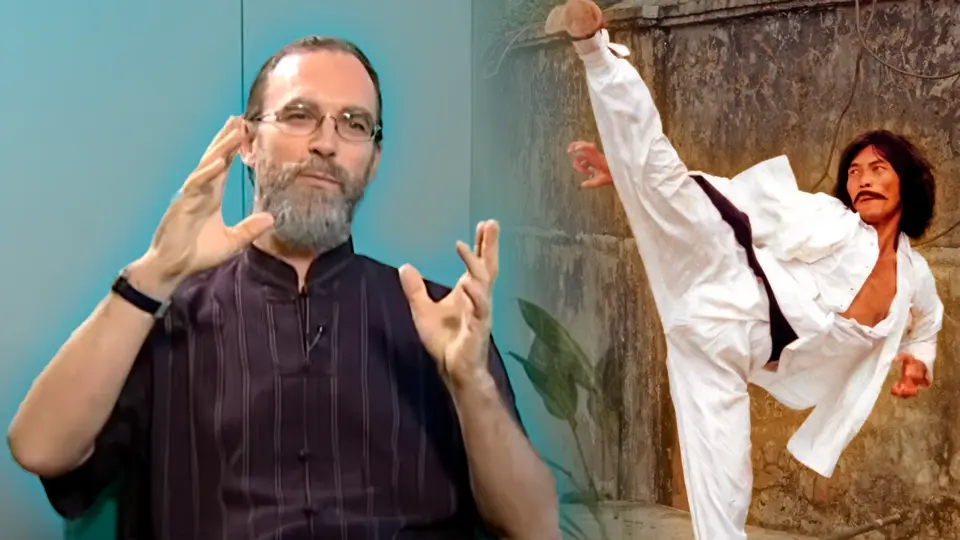
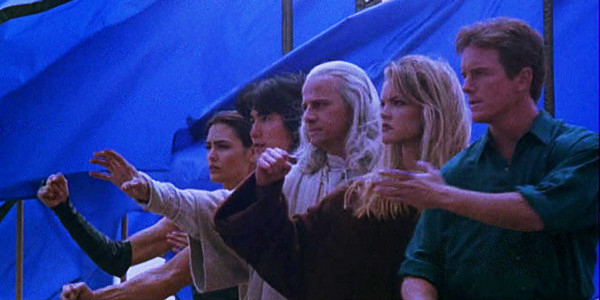
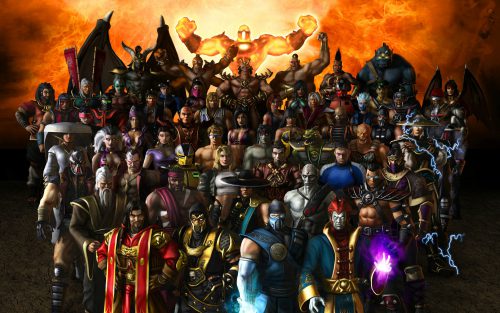
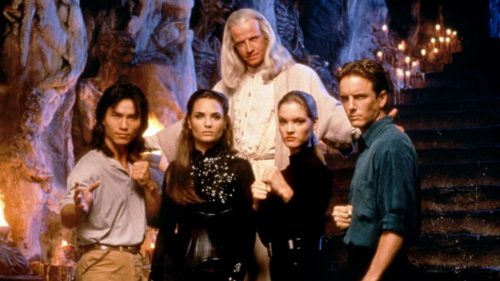
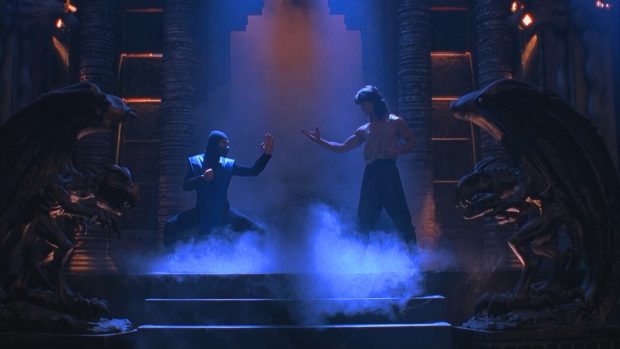
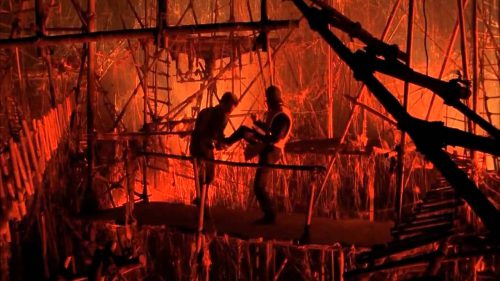
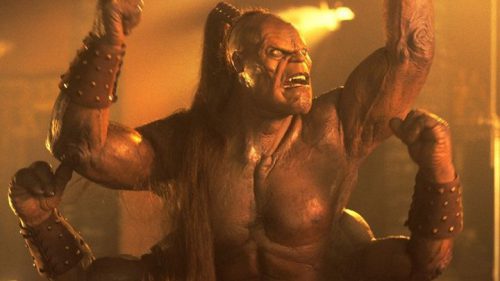
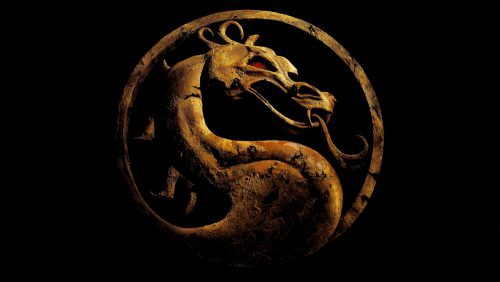
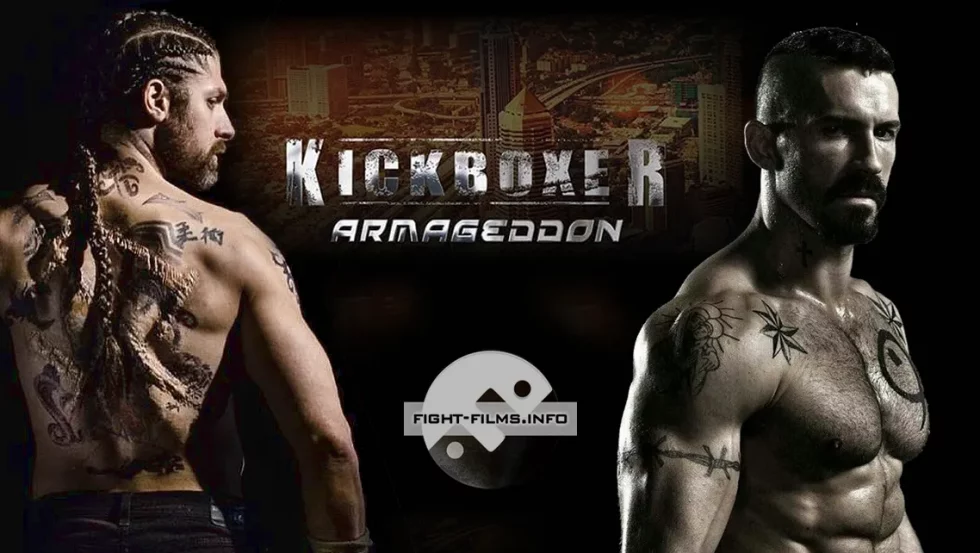
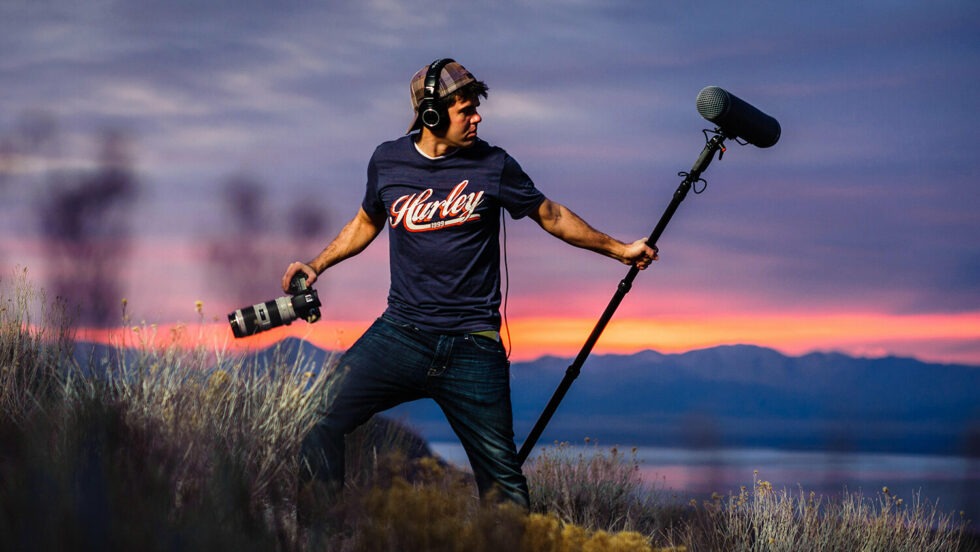
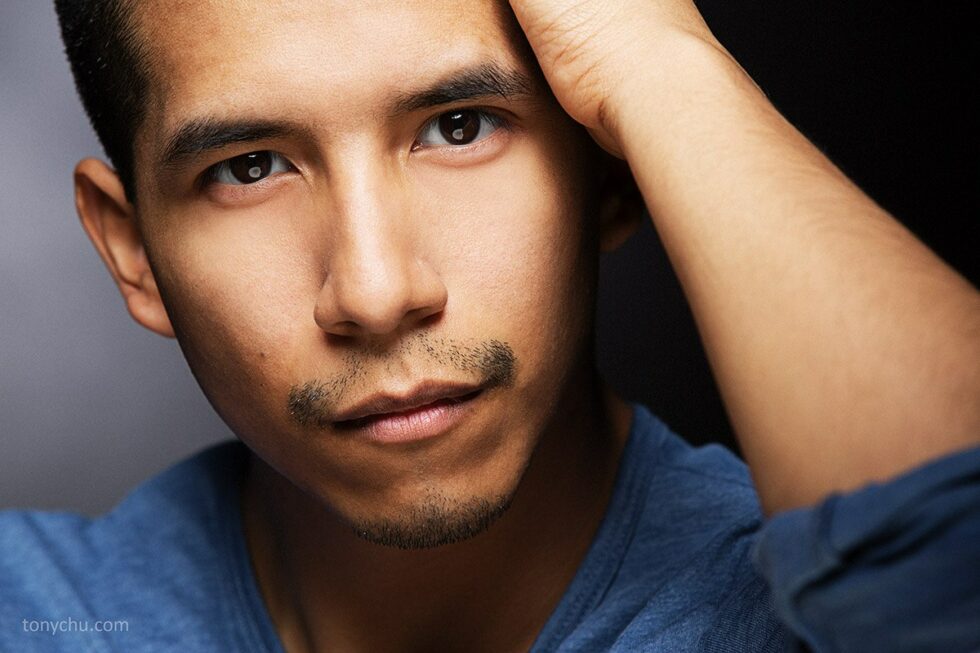
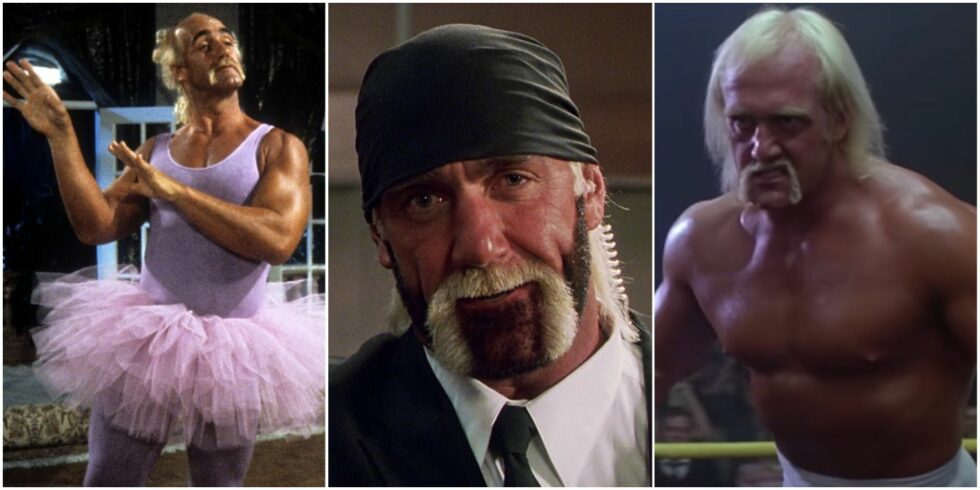
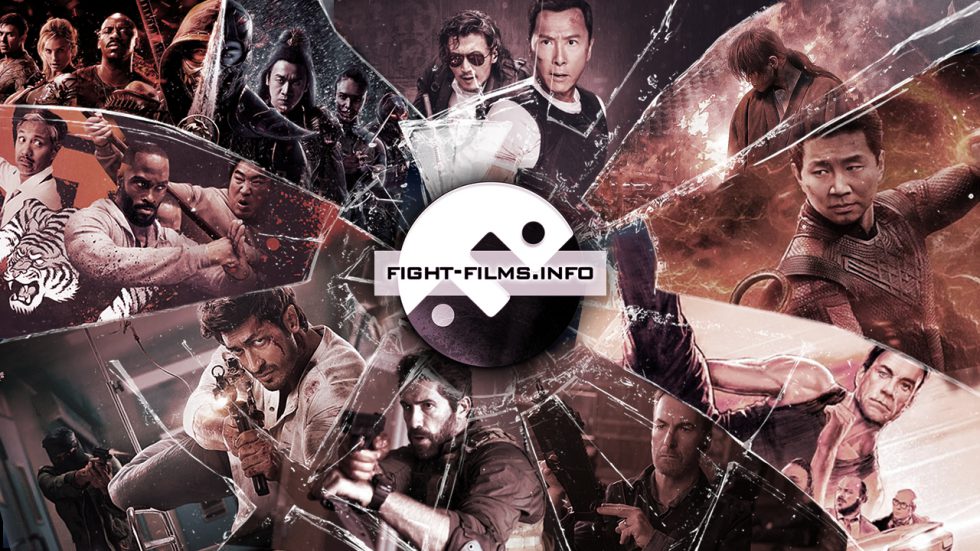
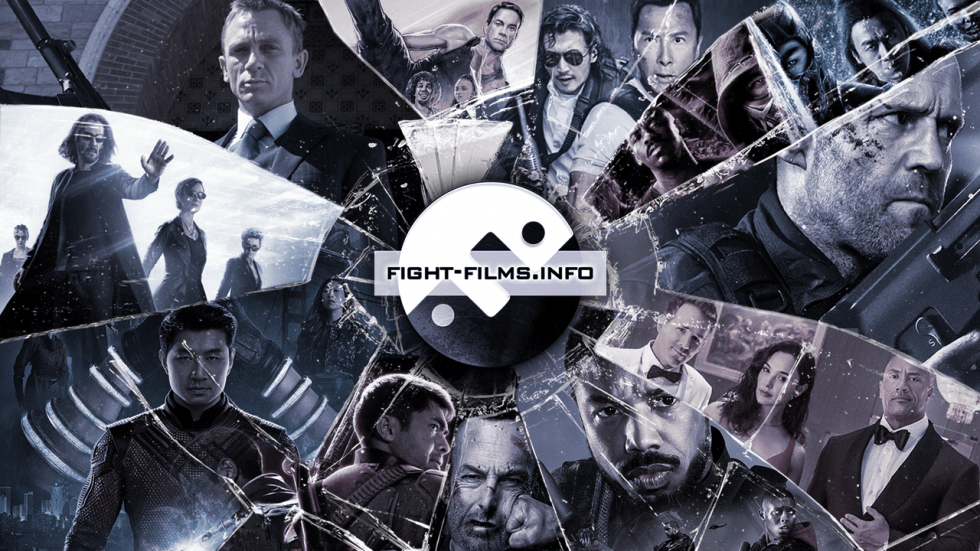
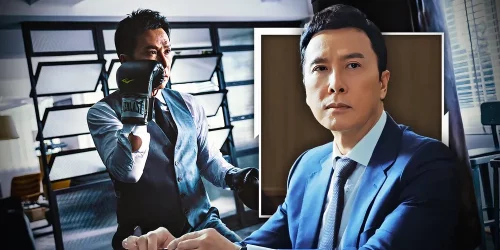
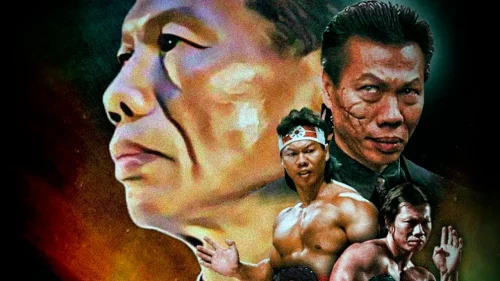

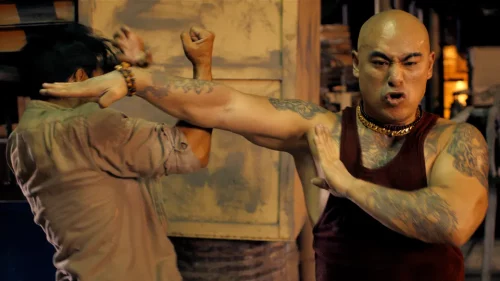
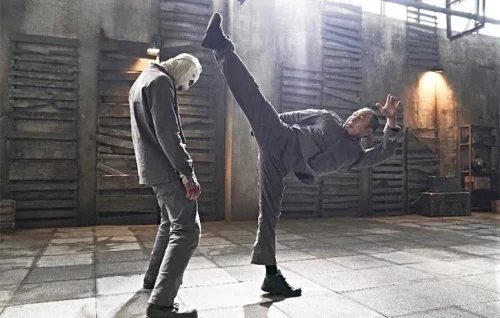
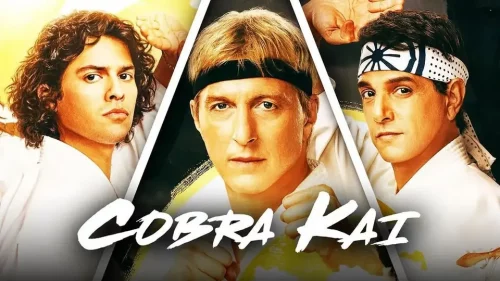
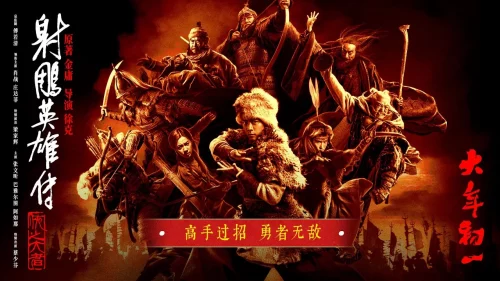
Спасибо. Очень интересно!
Большое спасибо. Очень интересно, хотя, если честно и успех и культовая статусность этого фильма мне не понятна, хотя я их и признаю и разделяю. Если объективно, условный сюжет, который со времен "Выхода Дракона" затерли и заездили просто в пыль. Несмотря на огромное количество актеров- спортсменов на вторых ролях, Франсуа Пети, Кейт Кук, Касамасса, Хаким Олстон, хореография даже по меркам 1995 года довольно слабая. Робин Шу до этого терся в Гонконге на вторых ролях и в фильмах совсем уж запредельной категории студии Филлипа Ко. В фильме присутствует определенная легкость и какой-то подкупающий подростковый юмор, но герои настолько же картонны как и сюжет. Являясь фанатом игры, я физически не могу критиковать ее экранизацию, но пути господни неисповедимы. Это, действительно, кинематографическое событие, культ и классика, а вот более зрелищные и техничные "Теккен" или "Живым или мертвым" провалились и канули в историю.
Дмитрий,
Дело не только в боях. Тут всё в совокупности повлияло: и сюжет, и музыка, и сама атмосфера. И Робин Шу, я считаю, просто идеально подошёл на роль Лю Кенга. Сейчас даже трудно представить кого-то другого на его месте. Хотя во время финального боя я периодически болел за Тагаву. Очень уж он классно воплотил образ Шан Цунга на экране. Мне по тем временам фильм казался вообще чем-то запредельным. Я реально считал "МК" самым лучшим фильмом в мире. Он был необычным в своём роде, заметно выделялся среди всех боевиков того времени. Занимал какую-то свою отдельную нишу. Мне, кстати, вторая часть тоже нравится, хоть она и заметно слабее. Сейчас её модно ругать, но не помню, чтобы в то время кто-то жаловался. Что фильмы, что игры, тогда всё это воспринималось как единое целое. Раньше как-то не замечал недостатков, да и сейчас тоже... а может просто не хочу их замечать. Смотря такие фильмы спустя годы, конечно, многое может показаться наивным и немного наигранным, поэтому нужно уметь в такие моменты как-бы возвращаться в детство и "придушивать" в себе внутреннего критика. Я, во всяком случае, так и делаю. Пока занимался переводом, пересматривал фильм (обе части). И могу сказать, что для меня он всё так же крут.
Я подозреваю, что ещё во-многом дело в том, что азиатский рынок для нас был практически в те времена недоступен. Это сейчас завались всего и всякого, японского, корейского, китайский классики от SB. То есть у МК конкурентов было немного. Но в целом, я полностью согласен с тем, что критика в себе надо давить.
Дмитрий,
Вот уж что-что, а "Теккен" и "DOA" ну никак вот не могу назвать более зрелищными и техничными.
Ну а почему нет? Мне первый "Теккен" очень нравится. По моему очень точно передаёт дух игры. А в DOA Кори Юэнь, что само по себе уже знак качества.
Дмитрий,
"Теккен" очень камерный и дешевый. А еще здесь ничего не осталось от игры, кроме персонажей. Техничными были разве что пара боев, и то, их уже не вспомнить в отличие от тех же боев из MK. Ну а про DOA и вспоминать не хочется - женские драки, бессмысленные и беспощадные. Хореографии ноль. Даже несмотря на Кори Юэня. Единственное светлое пятно в фильме - Кейн Косуги.
Без проблем. ) И спасибо администрации за публикацию и оформление. Вначале искал какое-нибудь интересное интервью с Робином Шу, а в итоге выплыл такой вот бонус. Что касается МК, то согласен полностью. Это больше, чем фильм. Это Легенда!
Black Dragon, большое спасибо за материал по одной из любимых тем! ;)
Вот это очень интересный материал, огромное спасибо за перевод и публикацию.